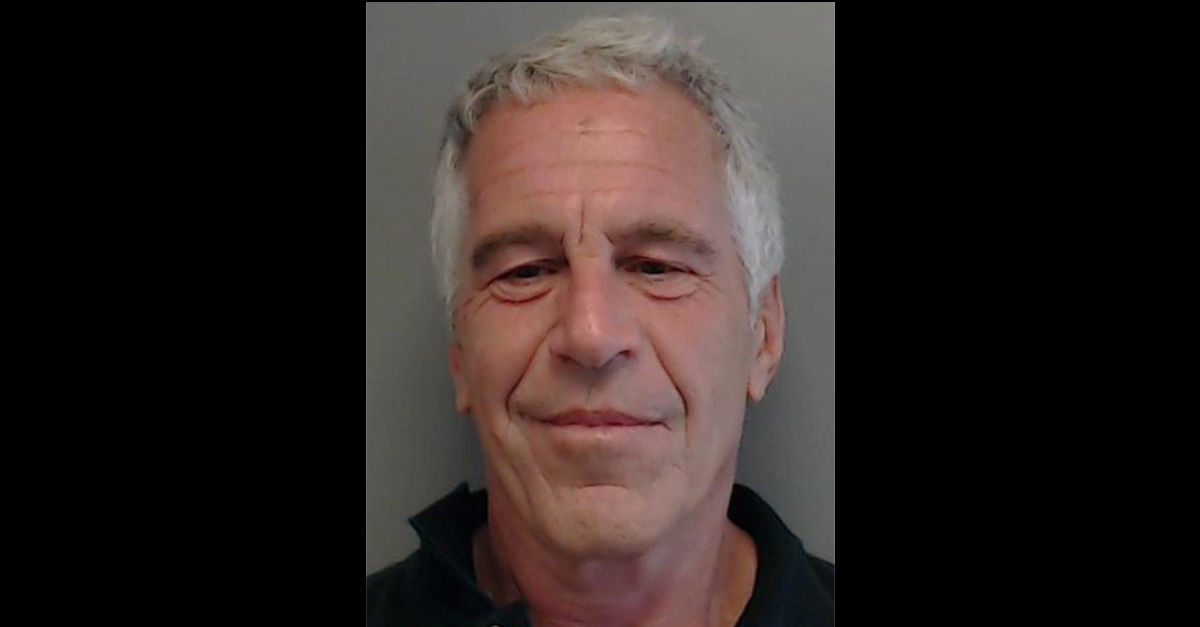
A group of judges with the 11th Circuit Court of Appeals on Friday ordered a relatively rare en banc hearing in a case involving a survivor of dead pedophile sex offender Jeffrey Epstein. The court’s Friday order withdraws and vacates a previous 2-1 decision issued by a panel of judges on the same court against the survivor. Now, all active judges will hear the case.
The underlying claim in the matter of Courtney Wild is that the federal government violated the rights of Epstein’s survivors when prosecutors allowed Epstein to enter a so-called “secret plea deal.”
The appeals court’s original 2-1 decision denied Wild the right to challenge the government’s highly criticized actions in the Epstein case.
“Despite our sympathy for Ms. Wild and others like her, who suffered unspeakable horror at Epstein’s hands, only to be left in the dark—and, so it seems, affirmatively misled—by government lawyers, we find ourselves constrained to deny her petition,” the original 2-1 ruling says. “It’s not a result we like, but it’s the result we think the law requires.”
A majority of judges found enough wrong with the original panel’s decision to agree to take the case.
Rule 35 of the Federal Rules of Appellate Procedure dictates when en banc hearings may be held:
A majority of the circuit judges who are in regular active service and who are not disqualified may order that an appeal or other proceeding be heard or reheard by the court of appeals en banc. An en banc hearing or rehearing is not favored and ordinarily will not be ordered unless:
(1) en banc consideration is necessary to secure or maintain uniformity of the court’s decisions; or
(2) the proceeding involves a question of exceptional importance.
Nine circuit judges took part in the decision to accept the case. A majority must have voted to take it; however, the breakdown is unknown. Participating were one judge appointed by George W. Bush (William Pryor), one appointed by Bill Clinton (Charles R. Wilson) two appointed by Barack Obama (Beverly B. Martin and Jill A. Pryor), and five appointed by Donald Trump (Kevin Newsom, Elizabeth L. Branch, Robert J. Luck, Barbara Lagoa, and Andrew L. Brasher). Since at least five judges were necessary to form a majority vote to take the case, by pure operation of statistics, at least two judges appointed by Republican presidents must have agreed to take the case; it is possible that none of the judges appointed by a Democrat agreed to take the case.
Circuit Judges Adalberto Jordan (Obama), Robin S. Rosenbaum (Obama), and Britt C. Grant (a former Brett Kavanaugh clerk appointed by Trump) recused themselves from the decision.
The original panel which jettisoned the survivor’s chances at legal redemption was made up of Newsom and senior circuit judges Gerald Bard Tjoflat (Gerald Ford) and Frank M. Hull (Clinton). Hull was the lone dissenter in the original circuit court decision.
In a statement to the Miami Herald, Wild’s attorneys said they “look[ed] forward to arguing before the full Eleventh Circuit that [Epstein’s] ‘secret’ plea deal violates the Crime Victims’ Act . . . and should be rescinded.”
“I had confidence this day would come,” Wild said (according to the newspaper). “We have fought for 12 years, and as I’ve said before, no matter how many obstacles pile up, we will never give up fighting for what is right.”
Read the order below.
Epstein Rehearing Order by Law&Crime on Scribd
[image via the Florida Department of Law Enforcement]